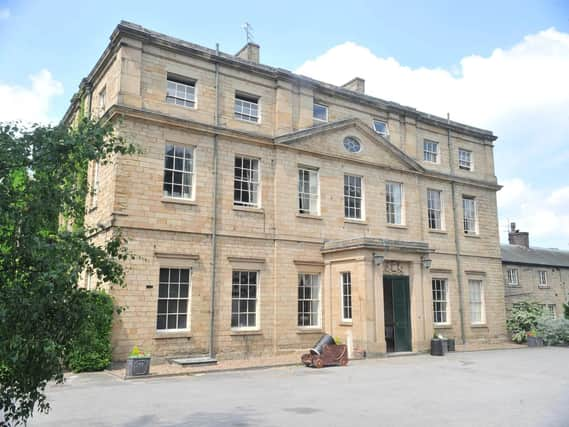Thundercliffe Grange: The Georgian mansion that became a lunatic asylum


The Georgian mansion hidden away near the village of Thorpe Hesley has been an aristocratic residence, a lunatic asylum for wealthy ladies and a hospital for disabled children during its colourful history.
In 1980, a group of 12 friends bought the decaying house and converted it into flats with communal facilities, and the current residents run Thundercliffe Grange as a co-operative utopia.
Advertisement
Hide AdAdvertisement
Hide AdGeorgian stately home Aske Hall in Richmond is open exclusively for Heritage Open DaysThey are opening up their impressive Grade II-listed home this month as part of the annual Heritage Open Days festival, and visitors can enjoy free tours.
The Thundercliffe estate was once owned by the monks of Kirkstead Abbey, who mined iron ore at the site, and after the Dissolution of the Monasteries the land passed to the Rokeby family.
By 1774, they had lost their fortune, reputedly through gambling, and the estate was purchased by the third Earl of Effingham, who knocked down the old manor house and replaced it with the Georgian property which still stands today.
When the Effinghams left in the late 19th century, it became an asylum for 'mental invalids' - mostly women from wealthy backgrounds in an era when they could be incarcerated for conditions that we would recognise today as depression and anxiety.
Advertisement
Hide AdAdvertisement
Hide AdAfter World War Two, the building was transferred to the newly-formed NHS, and it became a home, school and hospital for children with physical and mental disabilities - many of the patients had been left handicapped by the Thalidomide scandal.
By the 1970s, it was no longer suitable for hospital use and the building went onto the market.
How Hunton Steam Gathering became Yorkshire's best vintage tractor showSince 1980, Thundercliffe has been one of England's oldest surviving examples of a co-housing development, and many of the founding residents still live there. They have individual ownership rights to their property on a leasehold basis but the building and grounds are owned collectively as a freehold. All flat owners have a share in the company.
The original group of five families began looking for a suitable co-operative property in the 1970s, and considered a row of cottages or an old vicarage before stumbling upon Thundercliffe. The larger size of the building and its 22 acres of grounds increased the scope of the project and the group grew to include 12 stakeholders, most of them friends of the first five.
Advertisement
Hide AdAdvertisement
Hide AdThey decided to retain the ground floor of the house for communal living, as well as the outbuildings and gardens. The group renovated the 18th-century building themselves. They have access to a dining room, drawing room, terrace room, snooker room, laundry, workshop and gym.
Forty years on, the community is still cohesive and sociable. Many of the original residents have retired and their children have grown up and left, but newcomers have replaced them.
They decide their own maintenance budgets, work programme and social events calendar, hosting classical concerts, garden parties, fireworks displays, Christmas carols and lectures. The building can also be hired for weddings and parties.
This is what it's like to run one of the most traditional pubs in the Yorkshire DalesThey tend to a kitchen garden, orchard, allotments and eco-friendly wildlife habitat areas. The grounds also have a courtyard, stable block, plunge pool, stream and woodland.
Advertisement
Hide AdAdvertisement
Hide AdA beautifully restored three-bedroom apartment on the first floor is currently for sale - here's its listing on Rightmove.Thundercliffe Grange is open on Sunday September 15 with free tours of the common rooms and grounds running from 10.30am until 3.30pm. Parties of 12 or more should book places in advance on 0114 2453660.